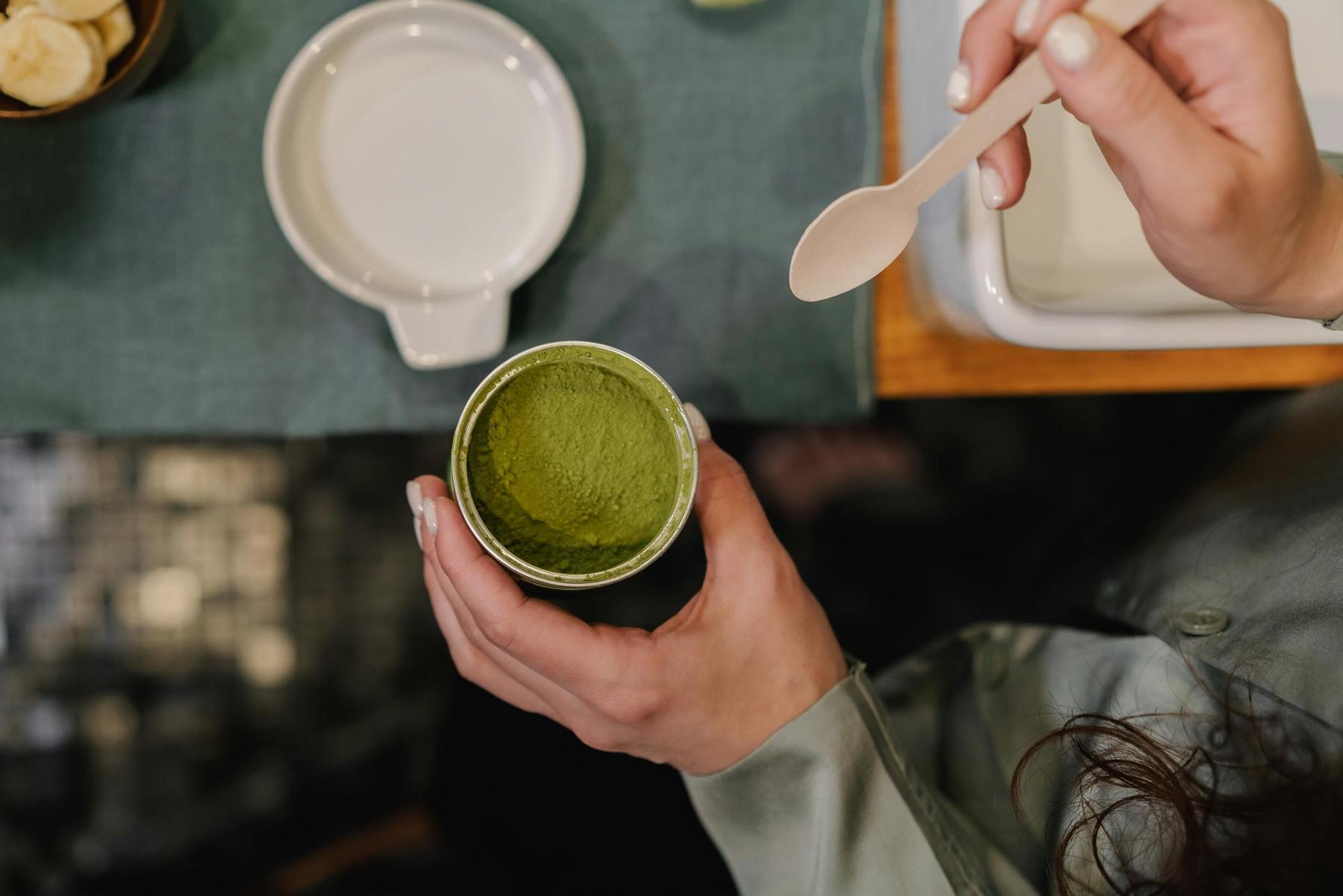In an era of wellness trends and quick-fix solutions, detox teas have surged in popularity across Australia. Promising everything from rapid weight loss and toxin elimination to increased energy and improved digestion, these products dominate social media feeds and health store shelves. With celebrity endorsements and before-and-after testimonials creating a powerful allure, many Australians find themselves wondering whether these herbal concoctions truly deliver on their promises or merely exploit our desire for simple solutions to complex health challenges. This clinical analysis examines the evidence behind detox teas to determine whether they represent a valuable health intervention or simply clever marketing in a tea bag.
What Are Detox Teas and What Do They Claim to Do?
Detox teas typically combine traditional tea leaves with various herbs, laxatives, and diuretics. Common ingredients include senna leaf, dandelion root, ginger, and caffeine-containing components. The marketing narratives surrounding these products generally centre on three key claims:
- Toxin elimination: Manufacturers suggest these teas can “flush” or “cleanse” the body of accumulated toxins from environmental pollutants, processed foods, and metabolic waste.
- Weight loss: Many brands promise rapid weight reduction, often showcasing dramatic before-and-after imagery.
- Enhanced well-being: Additional claims include improved energy levels, reduced bloating, clearer skin, and better digestion.
These products are typically sold as daily or periodic regimens, with consumers instructed to drink them for specific durations ranging from 7 to 28 days. Their positioning as “natural” remedies suggests safety and gentleness, despite containing potent botanical laxatives and diuretics.
The Australian market features numerous detox tea brands, with pricing typically ranging from $20 to $60 for a month’s supply—a significant investment for what essentially amounts to herbal tea blends with laxative properties.
What Scientific Evidence Exists About Detox Teas’ Effectiveness?
When examining the scientific literature, a striking discrepancy emerges between market claims and empirical evidence. No high-quality randomised controlled trials validate detox teas’ long-term efficacy for weight management or detoxification. A critical gap exists in the evidence base:
For weight loss claims: While users may experience short-term weight reduction of 3–5 pounds over days, this primarily reflects dehydration rather than meaningful fat loss. A systematic analysis of detox tea studies revealed methodological flaws including small sample sizes, lack of control groups, and industry funding biases. The temporary weight change typically reverses once normal hydration resumes.
For detoxification claims: No scientific consensus supports the notion that environmental toxins accumulate chronically in ways that require special intervention beyond the body’s natural systems. Toxins like heavy metals or pesticides are either excreted promptly or sequestered in adipose tissue, remaining unaffected by herbal tea consumption.
For wellness claims: While certain ingredients like green tea contain antioxidants with potential health benefits, commercial detox tea formulations often contain insufficient concentrations to produce meaningful effects. The FDA and similar regulatory bodies have repeatedly warned companies against marketing detox teas as “miracle cures” due to insufficient evidence.
Evidence Comparison: Claims vs. Reality
| Detox Tea Claim | Scientific Reality | Clinical Assessment |
|---|---|---|
| Eliminates toxins | No evidence that herbs in detox teas enhance the body’s natural detoxification processes | Unsupported claim |
| Promotes weight loss | Temporary water weight loss through diuretic and laxative effects; no sustained fat loss | Misleading claim |
| Boosts metabolism | Minor, transient metabolic effects from caffeine content; insignificant impact on caloric expenditure | Exaggerated claim |
| Reduces bloating | May temporarily reduce water retention through diuresis, but can paradoxically increase bloating through gastric irritation | Partially true but misleading |
| Improves energy | Caffeine content may provide temporary stimulation followed by potential crashes | Partially true but incomplete |
| “Cleanses” the digestive system | Laxative effects force bowel movements but do not “cleanse” in a meaningful way | Misrepresented natural process |
How Do Detox Teas Impact Your Body Physiologically?
Understanding the physiological mechanisms behind detox teas reveals why their effects are typically short-lived and potentially problematic:
Fluid Balance Disruption
The primary mechanism of action for most detox teas is fluid manipulation. Diuretic ingredients like dandelion increase urine output, while laxatives such as senna stimulate bowel movements by irritating the intestinal lining. This dual action creates substantial fluid loss, which manifests as transient weight reduction on the scale.
However, this disruption in fluid balance triggers compensatory mechanisms. The body responds to perceived dehydration by increasing thirst and enhancing sodium retention. Once normal hydration resumes, the lost water weight returns rapidly—typically within days.
Electrolyte Imbalances
The excessive loss of fluids through increased urination and bowel movements doesn’t just eliminate water; it depletes essential electrolytes including sodium, potassium, and chloride. These electrolytes are critical for neuromuscular and cardiovascular function.
Clinical case reports document concerning outcomes, including acute hyponatremia (dangerously low blood sodium) requiring intensive care following regular detox tea consumption. Such imbalances can manifest as muscle weakness, fatigue, cardiac irregularities, and in severe cases, seizures.
Metabolic Adaptation
Rather than enhancing metabolism for sustained weight management, detox tea regimens can trigger adaptive responses that compromise long-term health. The body perceives rapid fluid loss as a threat, potentially activating stress responses and hormonal adaptations that preserve energy stores rather than mobilising fat.
This metabolic adaptation aligns detox teas more closely with crash diets than with evidence-based weight management strategies, potentially setting users up for weight cycling patterns that are associated with adverse cardiometabolic outcomes.
What Risks and Side Effects Are Associated with Detox Teas?
The clinical literature documents numerous adverse effects associated with detox tea consumption, ranging from uncomfortable to potentially life-threatening:
Gastrointestinal Complications
The laxative components in detox teas, particularly senna, can cause severe diarrhoea, abdominal cramping, and general digestive distress. Paradoxically, a 2023 survey of detox tea users found that 68% reported persistent bloating or gas—directly contradicting marketing claims of improved digestion.
More concerning is the risk of laxative dependency, where the colon loses its natural motility due to habitual use of stimulant laxatives. This can result in chronic constipation upon discontinuation of the tea, creating a cycle of dependency.
Organ System Impacts
Beyond gastrointestinal effects, detox teas can affect multiple organ systems:
- Hepatic effects: Certain herbal ingredients found in detox teas have demonstrated hepatotoxicity. Case reports document instances of acute liver injury linked to detox tea consumption, with liver biopsy confirming submassive hepatic necrosis in severe cases.
- Cardiovascular effects: The combination of dehydration, electrolyte imbalances, and stimulants like caffeine can stress the cardiovascular system, potentially triggering arrhythmias or exacerbating existing cardiac conditions.
- Neurological effects: Excessive caffeine content in some detox teas can cause anxiety, insomnia, and headaches, while electrolyte disruptions may manifest as dizziness or cognitive changes.
Unregulated Product Concerns
In Australia, detox teas are classified as complementary medicines, requiring only limited evidence for safety and efficacy. This regulatory framework creates vulnerabilities for consumers:
- Inconsistent ingredient concentrations between batches
- Potential contamination with pharmaceuticals or toxic botanicals
- Inadequate safety testing or quality control
- Misleading labelling and unsubstantiated health claims
A 2024 investigation found that 62% of detox teas violated Australian advertising standards, highlighting the gap between marketing claims and product reality.
How Does the Body’s Natural Detoxification System Work?
To understand why detox teas are largely unnecessary, it’s essential to recognise the sophistication of the human body’s intrinsic detoxification mechanisms:
Hepatic Detoxification
The liver serves as the primary detoxification organ, employing a two-phase enzymatic process:
- Phase I metabolism: Cytochrome P450 enzymes modify toxins through oxidation, reduction, or hydrolysis, creating intermediary metabolites.
- Phase II conjugation: These metabolites are conjugated with molecules like glutathione, sulfate, or glucuronic acid, rendering them water-soluble for excretion.
This system operates continuously and efficiently without external aids. For example, the liver can metabolise approximately 90% of ingested ethanol within hours—far more efficiently than any tea could facilitate.
Renal Filtration
The kidneys filter approximately 180 litres of blood daily, removing waste products and toxins while preserving essential nutrients. This sophisticated filtration system maintains electrolyte balance and fluid homeostasis with remarkable precision.
Additional Elimination Pathways
Beyond the liver and kidneys, the body employs multiple mechanisms for eliminating unwanted substances:
- Gastrointestinal excretion: The digestive tract naturally eliminates waste through regular bowel movements.
- Pulmonary excretion: The lungs expel volatile compounds and carbon dioxide.
- Dermal excretion: Minor amounts of toxins exit via sweat.
These integrated systems function optimally when supported by adequate hydration, nutritious food, regular physical activity, and sufficient sleep—not when disrupted by the harsh laxative effects of detox teas.
What Are Evidence-Based Alternatives to Detox Teas?
For individuals genuinely interested in supporting their body’s natural processes and achieving sustainable weight management, evidence-based approaches offer superior outcomes:
Supporting Natural Detoxification
To optimise the body’s intrinsic detoxification capacity:
- Hydration: Consuming 2–3 litres of water daily supports kidney function and toxin elimination.
- Dietary fibre: Whole grains, fruits, vegetables, and legumes promote regular bowel movements and bind certain toxins for excretion.
- Nutrient adequacy: Key nutrients like B vitamins, magnesium, and antioxidants support enzymatic detoxification pathways.
- Limited alcohol and processed food intake: Reducing the toxin burden allows natural systems to function optimally.
Evidence-Based Weight Management
For those seeking clinically validated approaches to weight management:
- Sustainable dietary modifications: Creating moderate caloric deficits through balanced nutrition rather than extreme restrictions.
- Regular physical activity: Combining aerobic exercise with resistance training optimises body composition and metabolic health.
- Behavioural strategies: Addressing psychological aspects of eating behaviours and developing sustainable habits.
- Professional guidance: Working with healthcare providers who can offer personalised, evidence-based interventions tailored to individual needs.
Medical research consistently shows that integrated approaches combining these elements produce sustainable results far exceeding the transient effects of detox teas or similar products.
The Clinical Verdict on Detox Teas
After analysing the available evidence, a clear conclusion emerges: detox teas represent a triumph of marketing over science. Their purported benefits largely stem from temporary fluid manipulation rather than meaningful physiological improvements. The human body’s sophisticated detoxification systems operate efficiently without these products, while the risks of dehydration, electrolyte imbalances, gastrointestinal distress, and laxative dependency raise legitimate safety concerns.
For Australians seeking sustainable approaches to health and weight management, evidence-based strategies implemented with professional guidance offer safer, more effective outcomes than commercially marketed detox regimens. By understanding how the body naturally processes and eliminates waste, consumers can make informed decisions that support rather than disrupt their innate physiological processes.
The most valuable “detox” may not come in a tea bag but through consistent healthy behaviours that genuinely support the body’s remarkable capacity for self-regulation.
Do detox teas actually remove toxins from the body?
No credible scientific evidence demonstrates that detox teas enhance toxin elimination beyond what the body naturally accomplishes through the liver and kidneys. While certain tea ingredients like green tea contain antioxidants that may support liver function, commercial detox tea formulations typically contain insufficient concentrations to produce meaningful effects. The body’s sophisticated detoxification systems operate efficiently without these products when supported by adequate hydration, nutritious food, and regular physical activity.
Can detox teas help with sustainable weight loss?
Detox teas primarily cause temporary water weight loss through their diuretic and laxative effects, rather than fat reduction. Studies show that any weight lost is typically regained within days once normal hydration resumes. For sustainable weight management, clinical evidence supports approaches that create moderate caloric deficits through balanced nutrition, regular physical activity, and behavioural modifications—supervised by healthcare professionals when appropriate.
Are ‘natural’ detox teas safer than other weight loss methods?
The ‘natural’ label on detox teas can be misleading. Many contain potent botanicals like senna, which act as stimulant laxatives and can cause adverse effects including severe diarrhoea, abdominal cramping, and laxative dependency. Case reports document serious complications including acute liver injury and electrolyte imbalances requiring hospitalisation. Evidence-based weight management approaches supervised by healthcare professionals offer better safety profiles and long-term outcomes.
How long do the effects of detox teas typically last?
The effects of detox teas are generally short-lived. The initial weight loss, primarily from water and waste elimination, typically reverses within days as the body restores normal hydration and electrolyte balance. Any temporary reduction in bloating or digestive discomfort may subside once the tea’s laxative effects wear off. Long-term use may lead to adaptation where stronger doses are needed to produce the same effect, potentially leading to dependency.
What should I consider before using weight management products?
Before trying any weight management approach, consider: (1) Scientific evidence—look for methods supported by peer-reviewed research rather than testimonials; (2) Safety profile—understand potential side effects and contraindications; (3) Sustainability—evaluate whether the approach can be maintained long-term; (4) Individual factors—consider your medical history and specific health needs; and (5) Professional guidance—consult with healthcare providers for personalised, evidence-based recommendations tailored to your circumstances.



